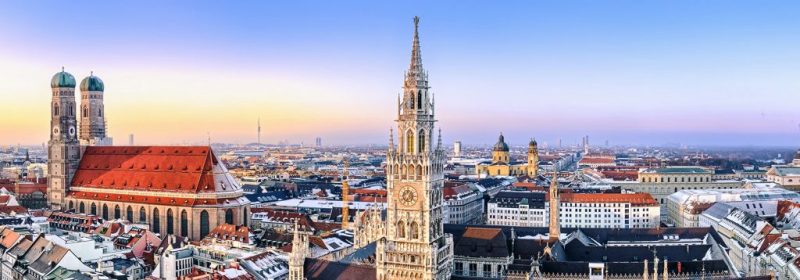Située en Bavière, Munich est la 3ème plus grande ville allemande, elle affiche donc un dynamisme propre aux métropoles et en même temps propose de nombreuses merveilles culturelles à visiter. De quoi occuper ses week-ends libres et ses vacances sans trop dépenser.
La ville allemande est aussi une ville verte, moderne et très agréable pour les promenades, les sports de plein air ou plus simplement les après-midis relax entre amis. C’est un bon compromis pour les étudiants qui veulent s’étourdir de culture et en même temps pouvoir se relaxer à moindre coût.
Des monuments, des musées, des châteaux et autres curiosités
Munich possède plus de musées que toute autre ville allemande, vous n’aurez pas le temps de vous ennuyer si vous avez soif de découverte. Entre les musées d’histoire, d’art et de science, vous aurez de quoi occuper vos méninges durant de longs après-midis. Le musée des techniques, le Kunstareal, le musée BMW sont autant d’idées de sorties passionnantes.
La vieille ville rassemble également des lieux et des monuments historiques importants comme la Marienplatz et son hôtel de ville, la Frauenkirche ou la cathédrale Notre Dame de Munich. Sans oublier le château de Neuschwanstein, le château de Louis II de Bavière qui a inspiré le château de la Belle au Bois dormant, situé à proximité de la ville.
Et puis chaque année au mois de septembre est organisé à Munich un même événement baptisé “Oktoberfest” en allemand et fête de la bière en français. C’est une partie importante de la culture bavaroise et un événement presque incontournable pour les munichois. Pendant cette fête qui dure 16 jours, près de 7 millions de litres de bière sont consommés et la ville se parsème de stands, jeux et une grande variété de plats traditionnels bavarois. Une curiosité que les étudiants étrangers peuvent explorer sous toutes ses coutures.
Des grands parcs et des universités d’excellence
Avec son « Englischer Garten » (Jardin anglais), tout proche de l’Université, la capitale bavaroise dispose du plus grand parc urbain d’Europe, plus grand même que le Central Park de New York et la ville est jalonnées de grands espaces verts qui permettent à la ville de respirer et de se targuer d’être l’une des capitales européennes les plus vertes.
Au printemps, ces grands parcs se remplissent d’étudiants qui viennent y réviser, de jeunes cadres et de familles en pause-déjeuner. L’ambiance y est détendue, conviviale et bon-enfant. La préservation de la nature fait partie du plan de développement de la ville et ses habitants lui en sont gré.
Enfin Munich est aussi, comme toutes les autres ville allemandes, une ville où les frais d’inscription à l’université sont les plus bas d’Europe, un élément important lorsqu’on dispose d’un budget limité. Cette quasi-gratuité des frais de scolarité ne signifie pas une université au rabais. Bien au contraire des universités comme l’ Université Ludwig-Maximilian et l’Université technique de Munich visent à devenir des universités d’élites et les länder leur allouent des fonds pour le développement de “concepts d’avenir” destinés à faire d’elles des pôles de recherche d’envergure internationale.






